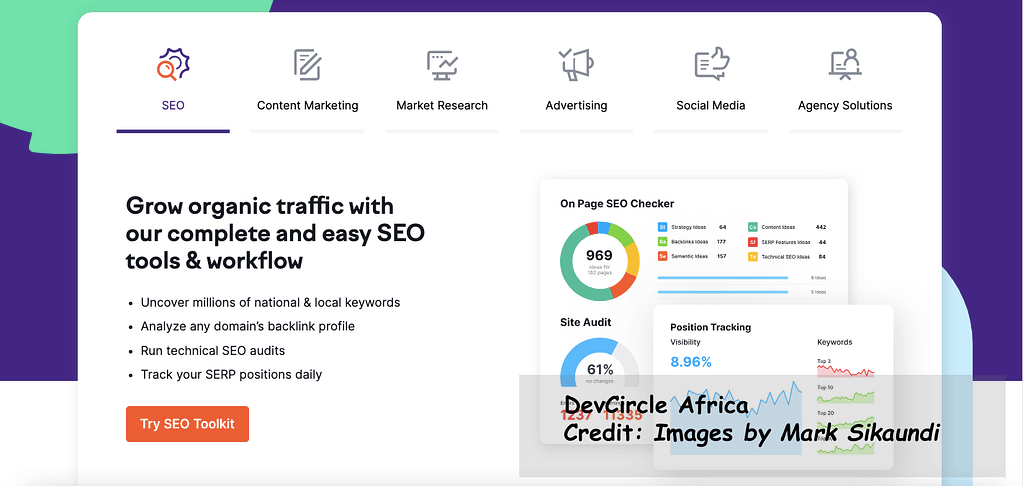SEO
Semrush vs Google Keyword Planner
Understanding the Differences Between SEMrush vs Google Keyword Planner
When it comes to keyword research tools, two of the most popular options are SEMrush and Google Keyword Planner. While both tools are designed to help with identifying relevant keywords for your search engine optimization efforts, they each have their own unique features and benefits.
Table of Contents
SEMrush is a comprehensive SEO tool that offers a wide range of features beyond just keyword research. It provides in-depth competitor analysis, backlink analysis, and site auditing capabilities. In terms of keyword research, SEMrush offers detailed keyword metrics such as search volume, keyword difficulty, and cost per click. It also allows users to track keyword rankings over time and identify new keyword opportunities.
On the other hand, Google Keyword Planner is a free tool provided by Google within its Google Ads platform. While it may not offer the same level of comprehensive features as SEMrush, Google Keyword Planner is a valuable resource for finding new keywords and estimating their search volume. It also provides keyword suggestions based on a seed keyword and allows for geographic targeting to tailor your keyword research to specific locations.
Ultimately, the choice between SEMrush vs Google Keyword Planner will depend on your specific needs and budget. If you are looking for a more robust SEO tool with advanced features beyond just keyword research, SEMrush may be the better option. However, if you are primarily focused on keyword research and looking for a free tool, Google Keyword Planner can still be a valuable resource.
Pros and Cons of Using SEMrush for Keyword Research
SEMrush is a popular choice among digital marketers for its comprehensive SEO capabilities, including keyword research. However, like any tool, there are both pros and cons to using SEMrush for keyword research.
One of the main advantages of SEMrush is its detailed keyword metrics and competitive analysis features. It provides users with valuable insights into keyword search volume, keyword difficulty, and cost per click, making it easier to identify high-value keywords for your SEO efforts. Additionally, SEMrush allows for tracking keyword rankings over time and monitoring your competitors’ keyword strategies.
On the downside, SEMrush can be expensive for small businesses or individuals on a tight budget. Its pricing plans are geared towards larger organizations and agencies, making it less accessible for smaller businesses. Additionally, some users have found the interface to be overwhelming and difficult to navigate, especially for beginners.
Overall, SEMrush remains a popular choice for keyword research due to its advanced features and comprehensive SEO capabilities. While it may not be the most budget-friendly option, the value it provides in terms of keyword insights and competitor analysis can make it a worthwhile investment for businesses serious about their SEO efforts.
Making the Most of Google Keyword Planner for Keyword Research
While SEMrush offers advanced features for keyword research, Google Keyword Planner remains a valuable tool for digital marketers looking to identify new keywords and estimate search volume. Here are some tips for making the most of Google Keyword Planner for your keyword research efforts:
1. Start with a seed keyword: Enter a seed keyword relevant to your business or industry into Google Keyword Planner to generate keyword suggestions. This can help you uncover new keyword opportunities you may not have considered.
2. Filter by search volume: Use the search volume filter in Google Keyword Planner to sort keywords by their average monthly search volume. This can help you prioritize high-volume keywords that are likely to drive more traffic to your site.
3. Target specific locations: If your business caters to a specific geographic area, use Google Keyword Planner’s location targeting feature to tailor your keyword research to that region. This can help you identify keywords that are relevant to your local audience.
4. Consider keyword competition: Google Keyword Planner provides an estimate of the competition level for each keyword. While this metric is not as comprehensive as SEMrush’s keyword difficulty score, it can still give you an idea of how competitive a keyword is and whether it’s worth targeting.
By following these tips and leveraging Google Keyword Planner’s features, you can effectively identify relevant keywords for your SEO and content marketing strategies. While it may not offer the same level of advanced features as SEMrush, Google Keyword Planner is still a valuable resource for keyword research.
